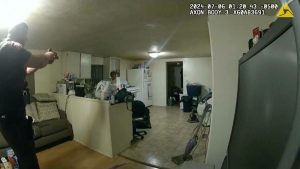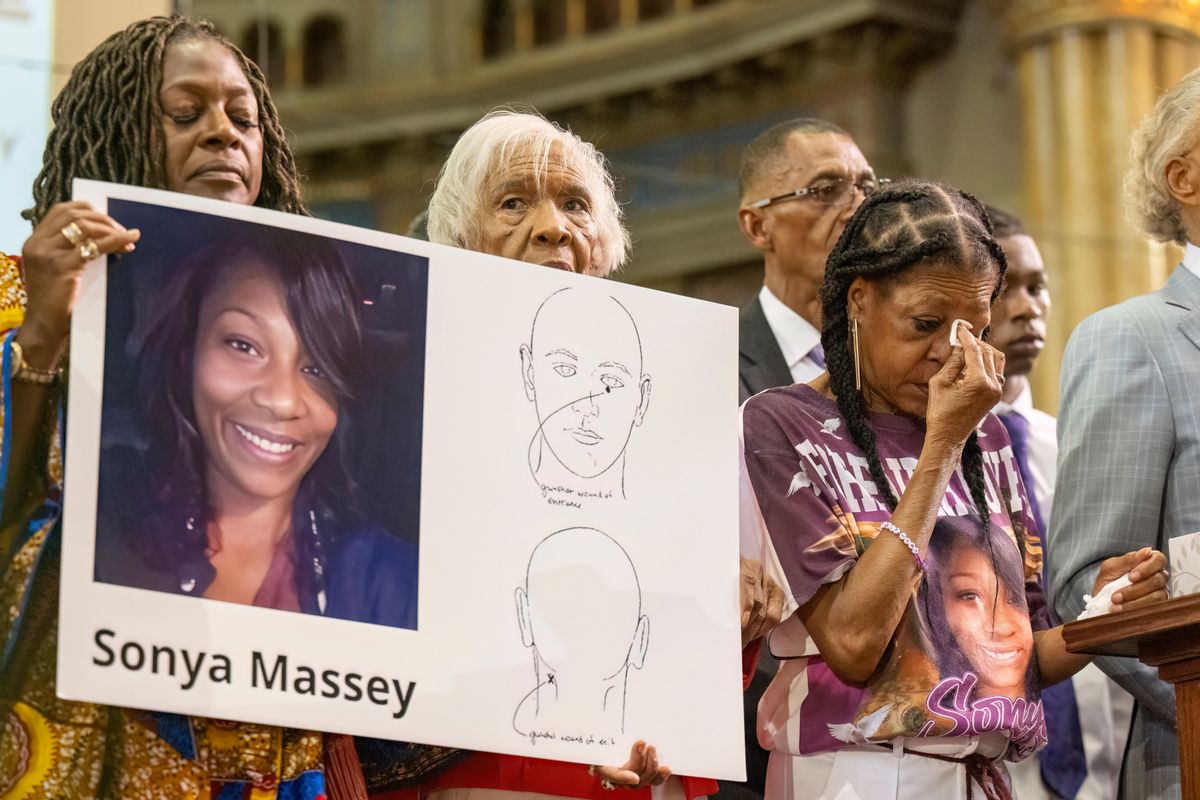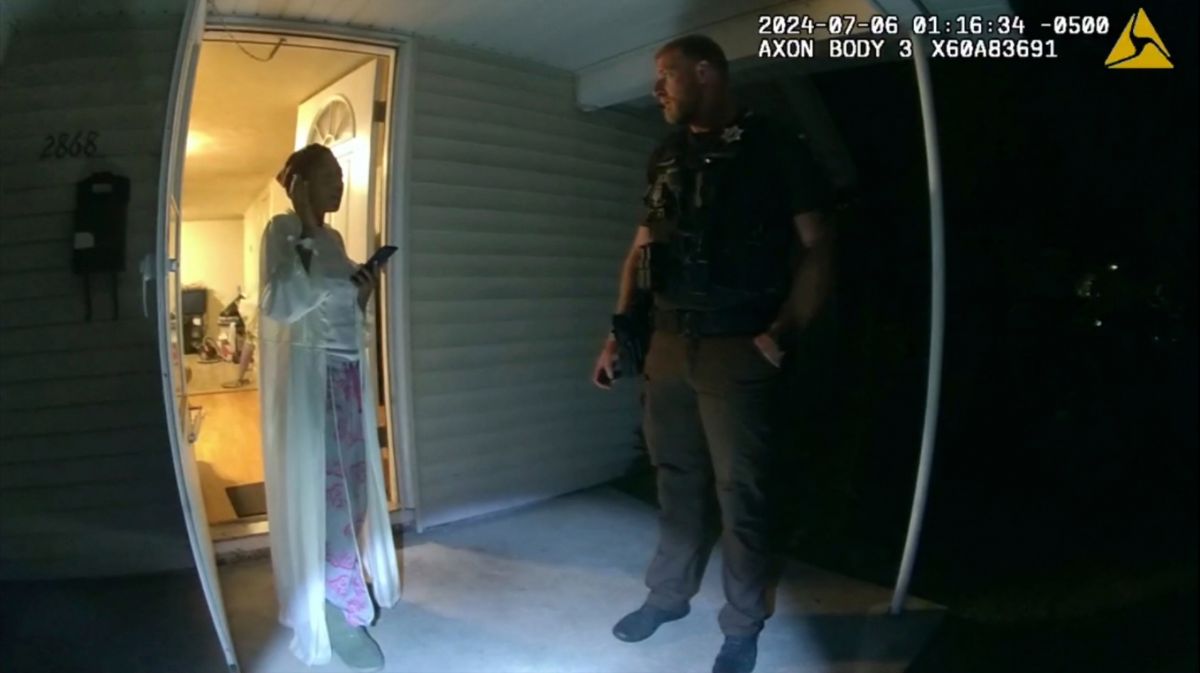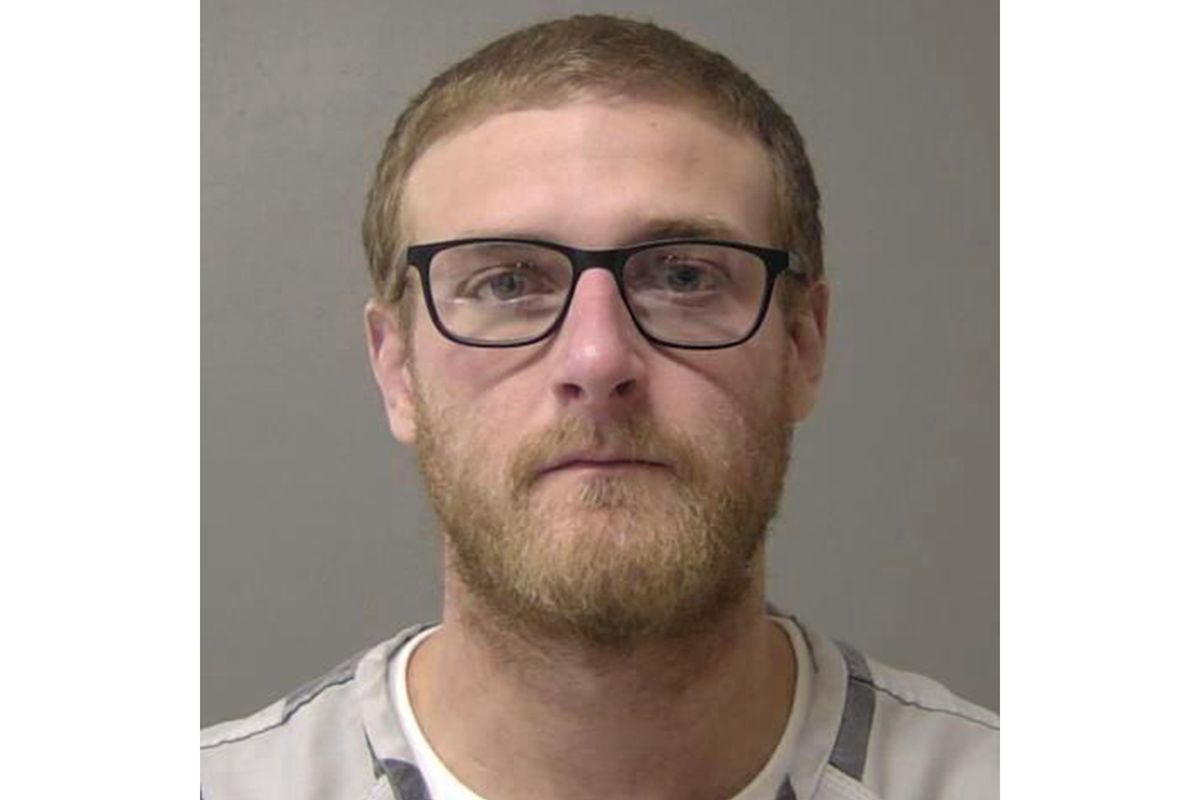PEORIA, Ill. (AP) — An Illinois jury resumed deliberations Wednesday in the first-degree murder trial of a sheriff’s deputy who shot Sonya Massey, a Black woman, in her home after she called 911 seeking help.
The nine-woman, three-man jury deliberated for more than six hours on Tuesday in the case against 31-year-old Sean Grayson.
Grayson and another deputy arrived at Massey’s home in Springfield, Illinois, after she reported a prowler outside early on the morning of July 6, 2024. They entered the house and, spotting a pan of hot water on the stove, Grayson ordered it removed, according to the other deputy’s body camera video, which was key evidence.
Grayson and Massey joked about how Grayson moved away as Massey moved the hot pan. Then, Massey said, “ I rebuke you in the name of Jesus.” Grayson yelled at her to drop the pot and threatened to shoot her. Massey apologized and ducked behind a counter.
“She makes it abundantly clear, ‘I want no part of this. Let this be done,’” Sangamon County First Assistant State’s Attorney Mary Beth Rodgers said in her closing argument.
Defense attorney Daniel Fultz beseeched the jury to decide how Grayson felt in the moment, “not to sit back 15 months later and say, ‘This is what I would have done.’”
“It is true that she put the pot down. If it ended there, we wouldn’t be here today, but for reasons we’ll never know, she reacquired the pot, stood up and threw it in his direction,” Fultz said. “Only at that time did he fire his weapon.”
Massey’s killing raised new questions about U.S. law enforcement shootings of Black people in their homes. The accompanying publicity, protests and legal action over the shooting prompted the judge to move the trial from Springfield to the city of Peoria, about 70 miles (110 kilometers) to the north.
If convicted of first-degree murder, Grayson faces a sentence of 45 years to life in prison. The jury can also consider second-degree murder, which applies when there is a “serious provocation” or when defendants believe their actions are justified even though that belief is unreasonable.
Second-degree murder is punishable with a sentence of four to 20 years in prison, or probation.
By JOHN O’CONNOR
Associated Press




